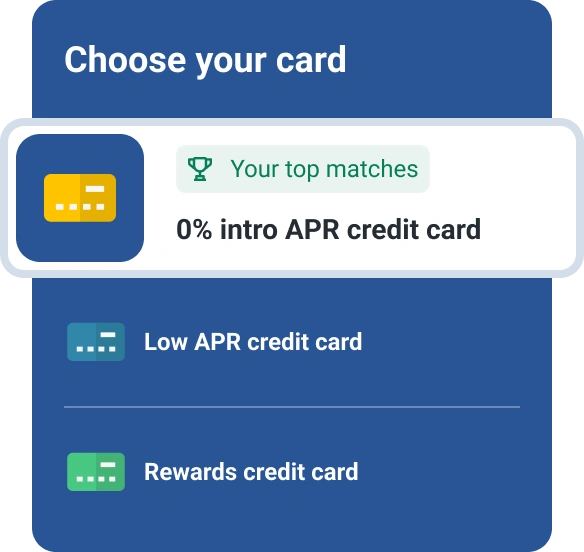How to Choose a Department Store Credit Card

When choosing a department store credit card, look for a card with an appealing intro offer, ongoing cardholder perks and few fees. Department store cards may offer unparalleled benefits to loyal shoppers, and may be easier to qualify for than a general purpose credit card—but don't assume a store card is always the best choice. In some cases, a general rewards card or card with a low interest rate might be a better option.
Choosing a Department Store Card
Department store cards are co-branded credit cards offered by department stores and card issuers. Similar to other types of retail credit cards, department store cards come in two varieties:
- Closed-loop cards: You'll only be able to use a closed-loop card at the department store that offers the card. However, if the department store has multiple brands, you may be able to use the card at all of its locations.
- Open-loop cards: This card will have a payment network logo on it, such as Visa or Mastercard. You can use these cards at any store that accepts cards from that network.
Many department stores offer both closed- and open-loop cards. An open-loop card will offer the most flexibility, and may even offer more rewards since you can earn benefits wherever you shop. However, you may find it's easier to get approved for a closed-loop card.
What to Consider Before Getting a Department Store Card
Choosing the right card will depend on your financial situation and lifestyle. There are a lot of features and fees to compare, and with department store cards, you may want to examine four areas in particular:
Interest Rates
Rewards cards can save you money, but also tend to have a higher annual percentage rate (APR), which makes carrying a balance more expensive. It's often best to opt for a low-interest credit card rather than a rewards card if you frequently carry a balance. This is even more important with closed-loop department store cards, which may have higher APRs than general purpose rewards cards.
Fees
Regardless of whether you carry a balance, you may have to pay fees to keep and use a credit card. You may be charged an annual fee, as well as fees for late payments, cash advances and balance transfers. You can avoid the latter three by making your payments on time and only using your card for purchases. Some cards don't charge an annual fee, but those that do may offer more rewards or benefits. Compare the annual fee to the card's benefits to see if it may be worth paying.
Cardholder Benefits and Rewards
Department store credit cards sometimes offer a variety of benefits to cardholders, such as:
- Free shipping on eligible orders
- Discounts on purchases
- Early access to sales
- Birthday surprises or coupons
You may also be able to earn rewards in the store's loyalty program by using your card for purchases.
The value of the rewards can vary depending on the program, as can the rules for how and when you can redeem rewards and whether they expire. If you're not already familiar with the store's rewards program, review the terms to make sure you don't overvalue the rewards or let your rewards go unused.
Introductory Offers
Many department store cards offer an intro bonus or coupon for new cardholders. These can be enticing, particularly when you have a full basket and are ready to pay. However, non-store cards also offer intro bonuses, and some of those may be even bigger.
Department store cards and general purpose cards also sometimes have introductory interest rates, such 0% APR on your purchases during a promotional period. Carefully read the fine print on these offers and make sure you understand the APR you'll be charged once the promotional period ends.
With general purpose cards, your remaining balance will usually start to accrue interest at your standard rate after the promotional period ends. However, store cards may have a deferred interest promotion, meaning you'll have to pay all of the interest that would have accrued if you don't pay off the balance by the end of the promotional period.
When Getting a Department Store Credit Card Makes Sense
A department store credit card could make sense if you're making a large purchase and the card has a promotional interest offer or you'll receive a big discount. But the cards are probably best for people who frequent the store.
If you're a loyal shopper, you can benefit from extra savings, increased rewards on purchases, special discounts and the other perks the card offers. Don't let opening a store card keep you from comparison shopping, though. Even after accounting for the perks, the same purchase might be cheaper at a different store.
Can I Get a Department Store Card With Bad Credit?
It may be easier to get approved for a department store card than a general purpose card, particularly if you apply for a closed-loop card. If you're new to credit or rebuilding your credit, one of these cards could be a stepping stone even if you don't frequent the store.
Alternatively, you can look for a secured card. With a secured credit card, you provide the card issuer a security deposit, which becomes your credit limit. Some secured cards have high fees and, similar to store cards, may have high interest rates.
Know that applying for a department store card could initially hurt your credit, as the application will lead to a hard inquiry on your credit report. However, if you make your payments on time and keep your balance low, the card could help your credit in the long run.
Don’t apply blindly
Apply for credit cards confidently with personalized offers based on your credit profile. Get started with your FICO® Score for free.
See your offersAbout the author
Louis DeNicola is freelance personal finance and credit writer who works with Fortune 500 financial services firms, FinTech startups, and non-profits to teach people about money and credit. His clients include BlueVine, Discover, LendingTree, Money Management International, U.S News and Wirecutter.
Read more from Louis

